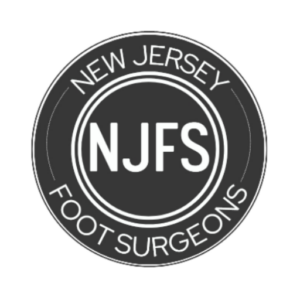Introduction
Posterior malleolus fractures, involving the rear portion of the tibia at the ankle joint, often require surgical intervention to restore stability and functionality.
Key Takeaways:
- Posterior malleolus fractures involve the back of the tibia and significantly impact ankle stability, often requiring surgical correction.
- Open reduction and internal fixation (ORIF) are standard techniques to realign and stabilize the fractured bone, ensuring proper joint function.
- Full recovery can take 4-6 months, with a gradual progression from immobilization to weight-bearing and physical therapy.
- Complications include infection, delayed healing, and post-traumatic arthritis, but timely surgery and proper care minimize these risks.
- Maintaining a healthy weight, engaging in low-impact exercises, and following a balanced diet support recovery and long-term joint health.
- Choosing a skilled orthopedic surgeon is critical for successful outcomes, ensuring precise treatment and minimized complications.
For specialized care in New Jersey, New Jersey Foot Surgeons offers expert treatment tailored to your needs. Contact (732)-320-9173 for more information.
What Is a Posterior Malleolus Fracture?
A posterior malleolus fracture refers to a break in the back part of the tibia at the ankle. It is often seen as part of a trimalleolar fracture, which includes breaks in the lateral and medial malleoli as well. The posterior malleolus is crucial for ankle stability, and its involvement can compromise joint integrity and movement. This fracture frequently results from high-impact injuries, such as car accidents or sports-related trauma, where the foot is forcibly twisted or compressed.
Why Is Surgery Necessary for Posterior Malleolus Fractures?
Surgery becomes necessary when the fracture fragment is large, displaced, or causing joint instability. Conservative treatments like casting may be insufficient in these cases, as misaligned bones can lead to arthritis and chronic pain. Surgical intervention realigns the bone fragments and stabilizes the joint, thereby enhancing healing and reducing long-term complications.
How Is Posterior Malleolus Fracture Surgery Performed?
Surgical management of a posterior malleolus fracture typically involves open reduction and internal fixation (ORIF). The surgeon makes an incision near the ankle, repositions the fractured bones, and secures them with screws or plates. The goal is to restore the normal anatomy of the ankle joint, ensuring proper function and alignment. In complex cases, the surgeon may need to address associated injuries to the other malleoli or ligaments.
What Are the Benefits of Posterior Malleolus Surgery?
Surgical treatment offers numerous benefits, including improved joint stability, reduced pain, faster recovery, and a lower risk of post-traumatic arthritis. Proper fixation ensures that the ankle can bear weight effectively and move without restriction. Furthermore, restoring joint congruity minimizes the chances of developing chronic conditions that could hinder mobility.
What Can You Expect During Recovery?
Recovery from posterior malleolus surgery is gradual and involves several phases. Initially, the ankle is immobilized in a cast or brace for about 6 weeks. During this period, patients are typically non-weight-bearing. Physical therapy begins after immobilization, focusing on restoring range of motion, strength, and balance.
Most patients transition to partial weight-bearing around the 6-week mark and achieve full weight-bearing by 12 weeks. Complete recovery, including the return to high-impact activities, may take 4-6 months.
What Are the Risks and Complications of Surgery?
Like all surgeries, posterior malleolus surgery carries risks such as infection, nerve damage, delayed healing, or nonunion of the bone. Proper surgical technique and post-operative care minimize these risks. However, even with successful surgery, some patients may develop arthritis in the ankle over time. Close follow-up with the surgeon is essential to monitor healing and address any complications early.
How to Prepare for Posterior Malleolus Surgery?
Preparation involves diagnostic imaging, such as X-rays and CT scans, to assess the fracture’s complexity. Patients should discuss their medical history and any medications they are taking with their surgeon. Quitting smoking is highly recommended, as it can impair bone healing. Additionally, arranging for help at home during the initial recovery phase is crucial, as mobility will be limited.
How to Choose the Right Surgeon?
Selecting an experienced orthopedic surgeon is critical for optimal outcomes. Look for board-certified surgeons who specialize in foot and ankle surgeries. Patient reviews, success rates, and the surgeon’s experience with similar cases are also important factors. Consulting with a trusted clinic, like New Jersey Foot Surgeons, ensures access to specialists who are well-versed in managing complex fractures.
What Are the Long-Term Outcomes of Posterior Malleolus Surgery?
Long-term outcomes are generally favorable, especially when surgery is performed promptly. Most patients regain full function, provided they follow rehabilitation protocols. Factors influencing outcomes include the extent of the injury, adherence to post-operative care, and the surgeon’s expertise. Proper surgical intervention reduces the risk of chronic pain and joint degeneration, enabling patients to return to normal activities and even sports in many cases.
What Lifestyle Modifications Can Aid Recovery?
Lifestyle changes play a significant role in supporting recovery. Maintaining a healthy weight reduces stress on the healing ankle while engaging in low-impact exercises like swimming helps maintain fitness without overloading the joint. A balanced diet rich in protein, calcium, and vitamin D promotes bone healing.
Quitting smoking is crucial, as it enhances blood flow and supports tissue repair. Patients should work closely with their healthcare team to develop a comprehensive recovery plan tailored to their needs.
Why Consider New Jersey Foot Surgeons for Your Care?
At New Jersey Foot Surgeons, our team of orthopedic specialists, led by Dr. Nick Argerakis, is dedicated to providing expert care for complex foot and ankle injuries, including posterior malleolus fractures. Dr. Argerakis is a board-certified foot and ankle surgeon with extensive training in reconstructive surgery, having completed advanced fellowship training at the Weil Foot, Ankle & Orthopedic Institute in Chicago. We utilize advanced surgical techniques and personalized treatment plans tailored to each patient’s needs.
Contact us at (732)-320-9173 to schedule a consultation and begin your journey to recovery.


